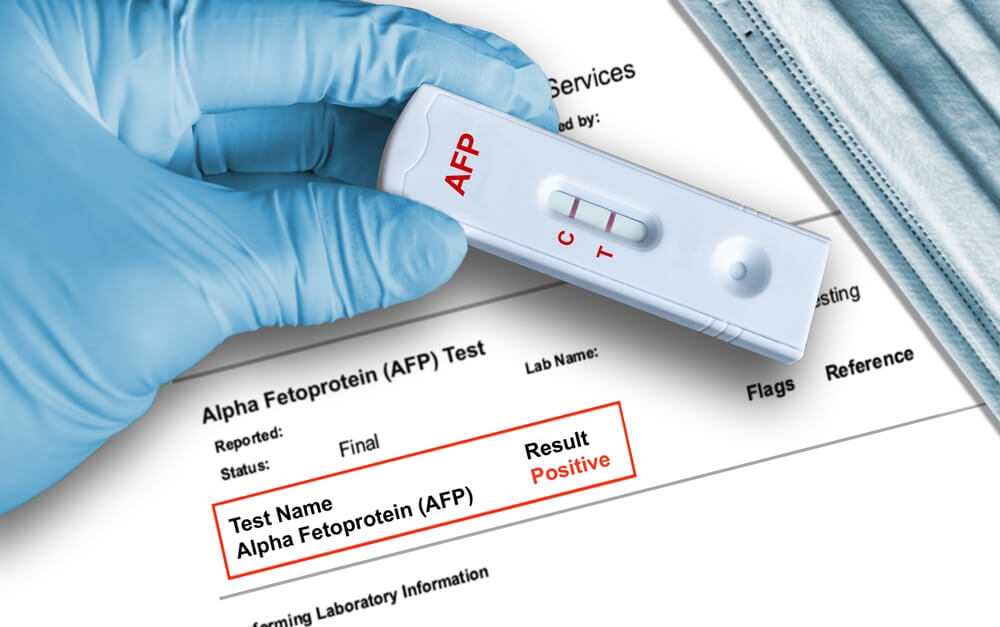Pregnancy has its perks, and you should enjoy this blessed period every day. Besides the pregnancy glow and all the cute bonding rituals with your unborn baby, there are some essential things you need to do before the delivery to ensure your baby is in good health.
During your pregnancy, you will undergo a number of blood tests to ensure the health of you and your baby, including the Alpha-Fetoprotein test (AFP test) or AFP blood test. Checking Alpha-Fetoprotein in pregnancy is very important as it can provide helpful information about your pregnancy and your baby’s health.
Prior to testing, you should understand why the test is done and what different results can mean. Here, you’ll find answers from specialists in Obstetrics in Jacksonville, Florida.
What Is an Alpha-Fetoprotein Test?

A blood test called an alpha-fetoprotein test quantifies the level of AFP in the blood, and it is usually done during the second trimester of pregnancy.
Like many other routine screening tests, Alpha-Fetoprotein screening is done between the 15th and 21st weeks of pregnancy. Knowing the particular day, you become pregnant is vital because the test results are the most accurate between weeks 16 and 18.
An Alpha-Fetoprotein screening is typically included in a quad screen. During this screening, you will also get tested for the following:
- human chorionic gonadotropin (HCG)
- estriol, a hormone produced by the placenta and baby’s liver
- inhibin A, a hormone produced by the placenta
What Is Alpha-Fetoprotein?
An unborn baby’s liver, GI tract, and yolk sac create alpha-fetoprotein. The protein then circulates through the maternal and fetal blood.
Although levels are typically low, this protein is also present in the blood of non-pregnant people. Adults with high AFP levels that aren’t pregnant may have some form of liver disease or cancer.
Why Is Alpha-Fetoprotein Screening Essential for Pregnant Women?
Checking the Alpha-Fetoprotein in pregnancy is essential because the likelihood that the baby has a congenital genetic disability will be estimated by healthcare providers using the results of this test, as well as the age and ethnicity of the woman.
This type of screening can pick up chromosomal abnormalities like Down syndrome and neural tube problems like spina bifida.
Your doctor will use the AFP findings to decide if you need additional testing for these disorders. However, you don’t have to be afraid, as a positive test does not guarantee that your baby will be born with a congenital abnormality.
The Alpha-Fetoprotein test is essential for mothers who have a high chance of giving birth to infants with birth abnormalities, such as those who:
- are 35 or older
- have a history of congenital disabilities in their family
- have diabetes
- have used drugs or other unsafe medication during pregnancy
How Is an AFP Blood Test Done?
For an AFP blood test, you must have your blood drawn. The test only takes a few minutes, and the results are ready in one to two weeks.
No additional preparation is required before an AFP test; however, hydrating well before your test can help make the collection easier.
Are There Any Risks Related to an AFP Blood Test?
There are no known risks when checking the Alpha-Fetoprotein in pregnancy. However, there are always common risks that could occur during any test requiring blood to be drawn, such as mild dizziness or discomfort from the needle used to collect your blood.
Understanding the Alpha-Fetoprotein Test Results as a Pregnant Woman

After doing the AFP blood test and getting the results, you should know their meaning. You can get different results, and they can indicate various things.
If your AFP levels are higher than usual when you are pregnant, it may indicate that your unborn child has a neural tube abnormality. However, incorrect pregnancy dates are the most frequent reason for high AFP levels.
It’s also good to know that AFP levels change significantly while pregnant. The test results won’t be accurate if you’ve been pregnant for longer or shorter than anticipated.
If you’re pregnant and your AFP level is unusually low, your fetus may have a chromosomal defect, such as Down syndrome or Edwards syndrome.
An abnormal test result does not guarantee that your child will have a congenital disability. Further testing is required before your doctor can diagnose. A second AFP test and an ultrasound may be needed. If the results are still abnormal, your doctor may recommend a more definitive test called an amniocentesis.
An amniocentesis is a procedure during which a doctor takes a tiny sample of amniotic fluid from the area surrounding the fetus for more advanced testing.
Your doctor may also advise chorionic villus sampling if your AFP test results indicate that the fetus may have a genetic disorder. A genetic test called CVS analyzes placental cells, and it can identify genetic diseases like:
- Cystic fibrosis
- Down syndrome
- Sickle cell
- Tay-Sachs
Final Words
Abnormal AFP results may indicate a genetic issue or a neural tube abnormality in the fetus. Realize this type of blood test is only a screening test rather than a diagnostic test. Abnormal AFP results do not always indicate a problem in the fetus.
You will probably need to do more different tests to identify or rule out genetic disorders or neural tube anomalies.
If you have more questions about AFP testing, we encourage you to call Trogolo Obstetrics and Gynecology in Jacksonville for a consultation.





